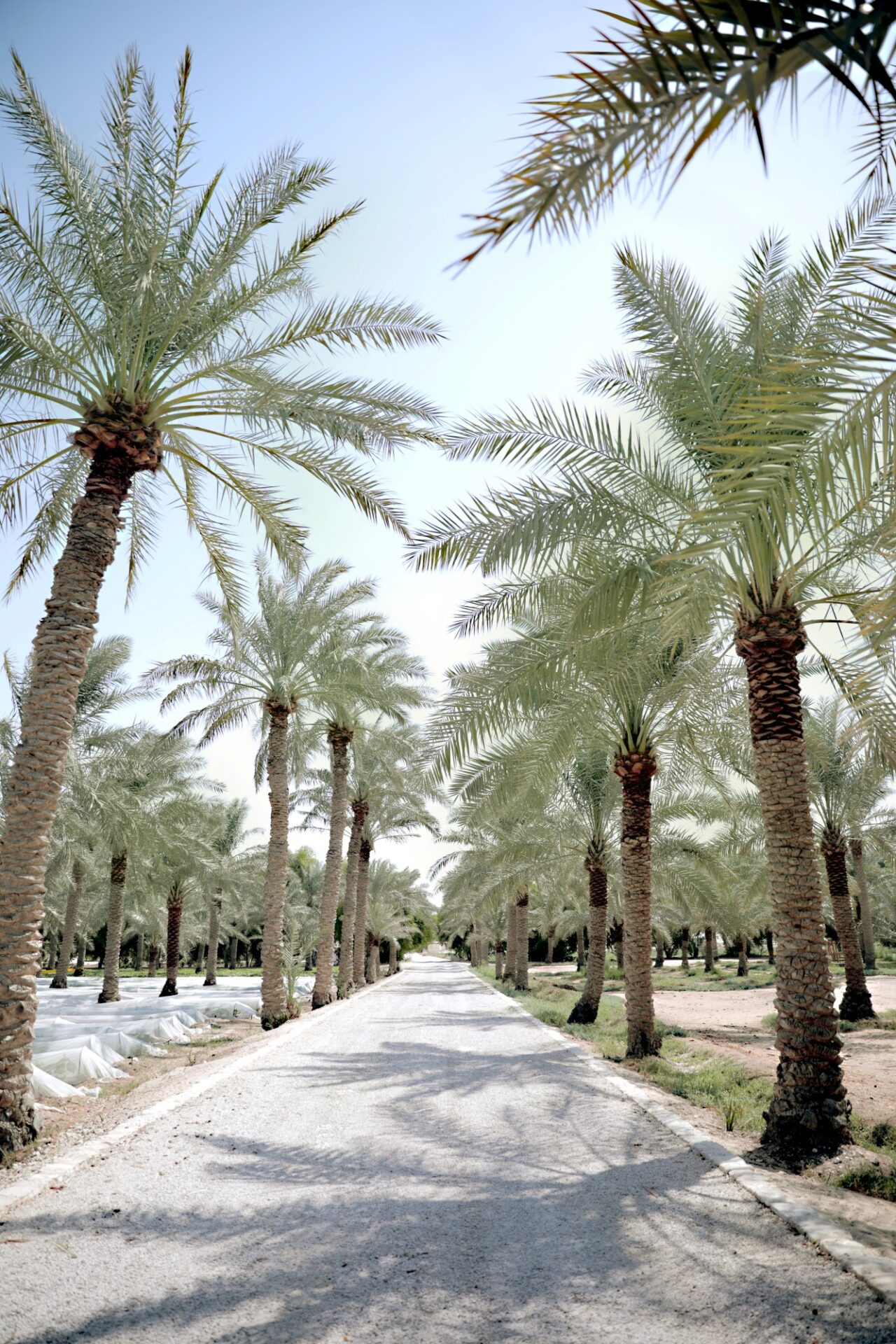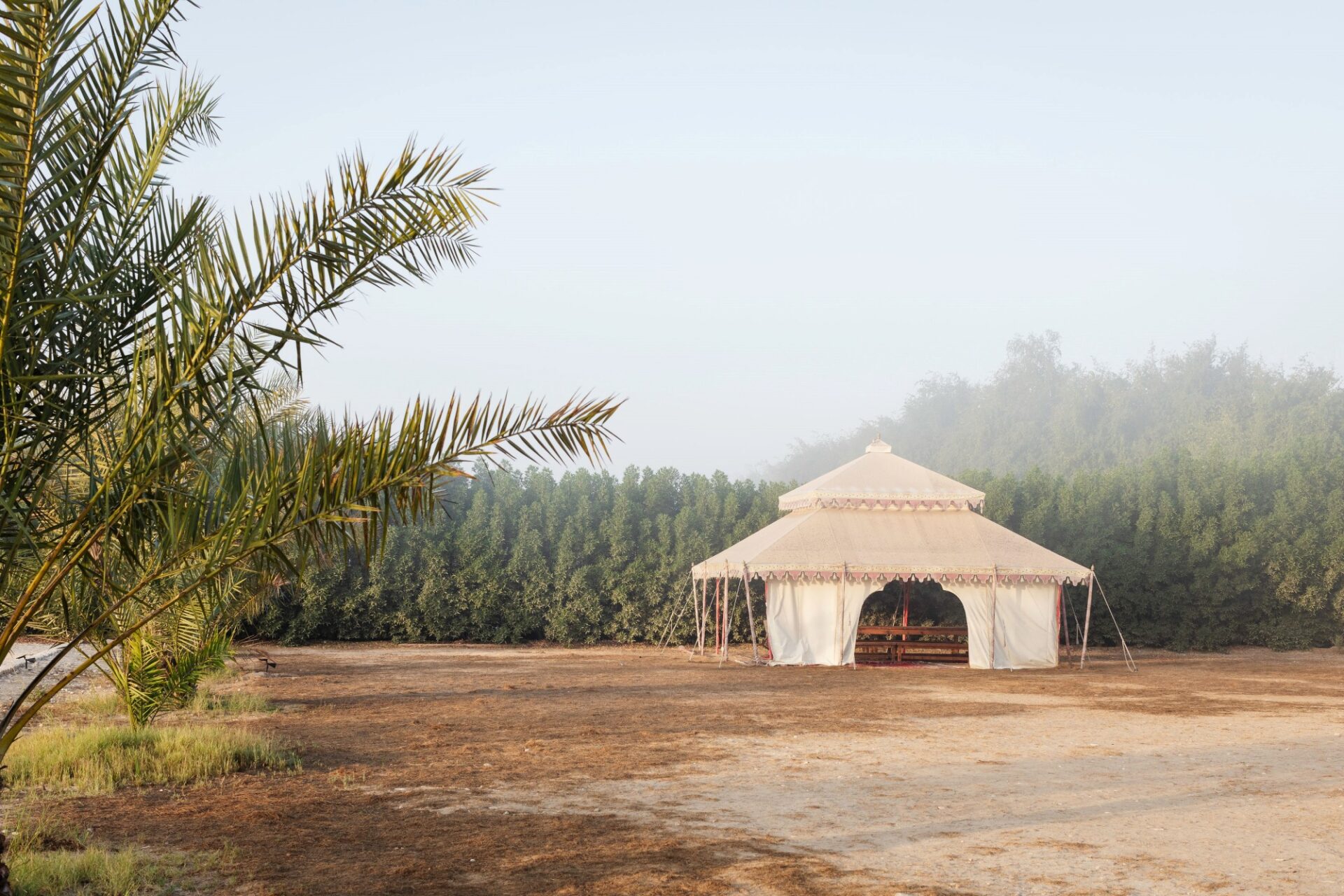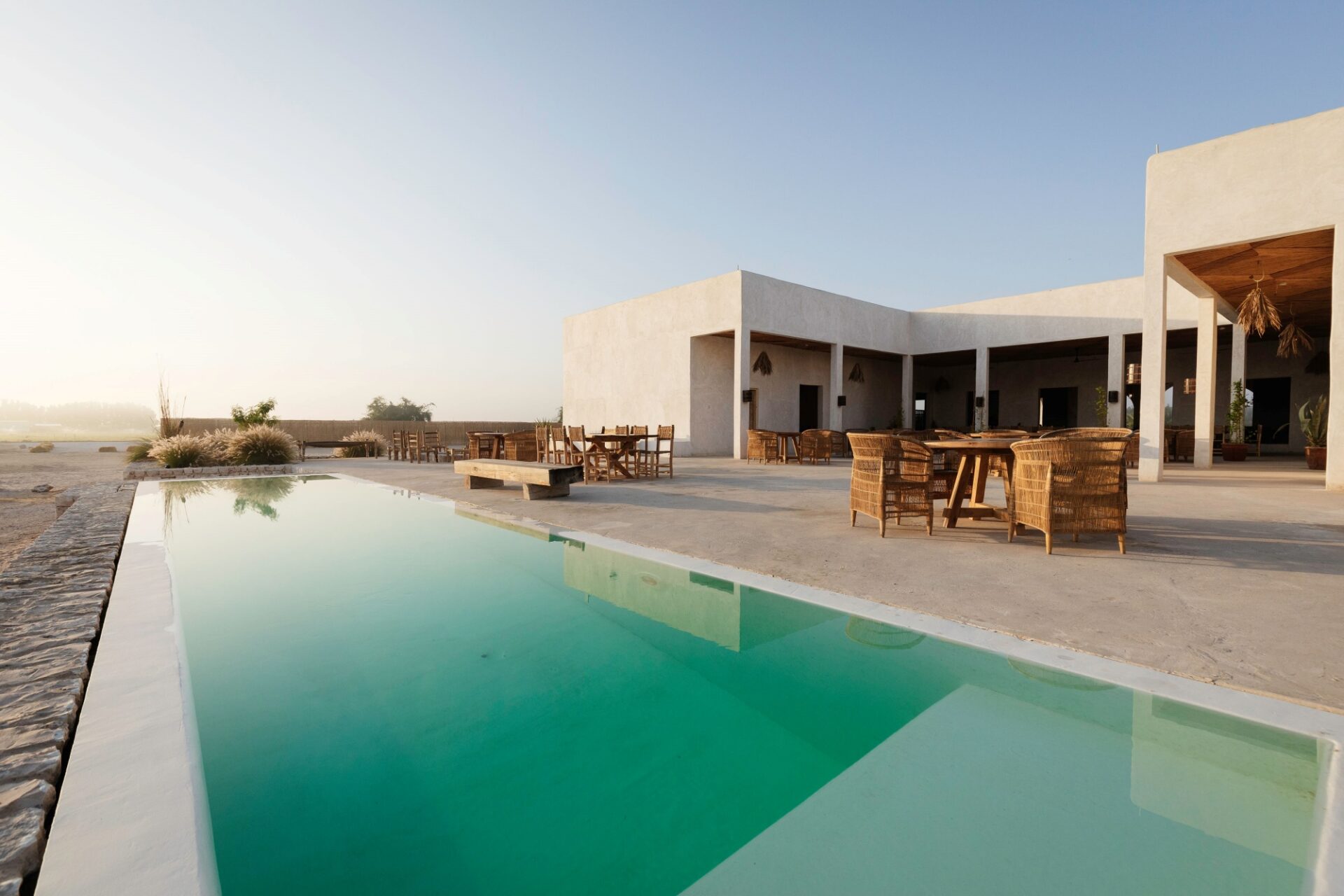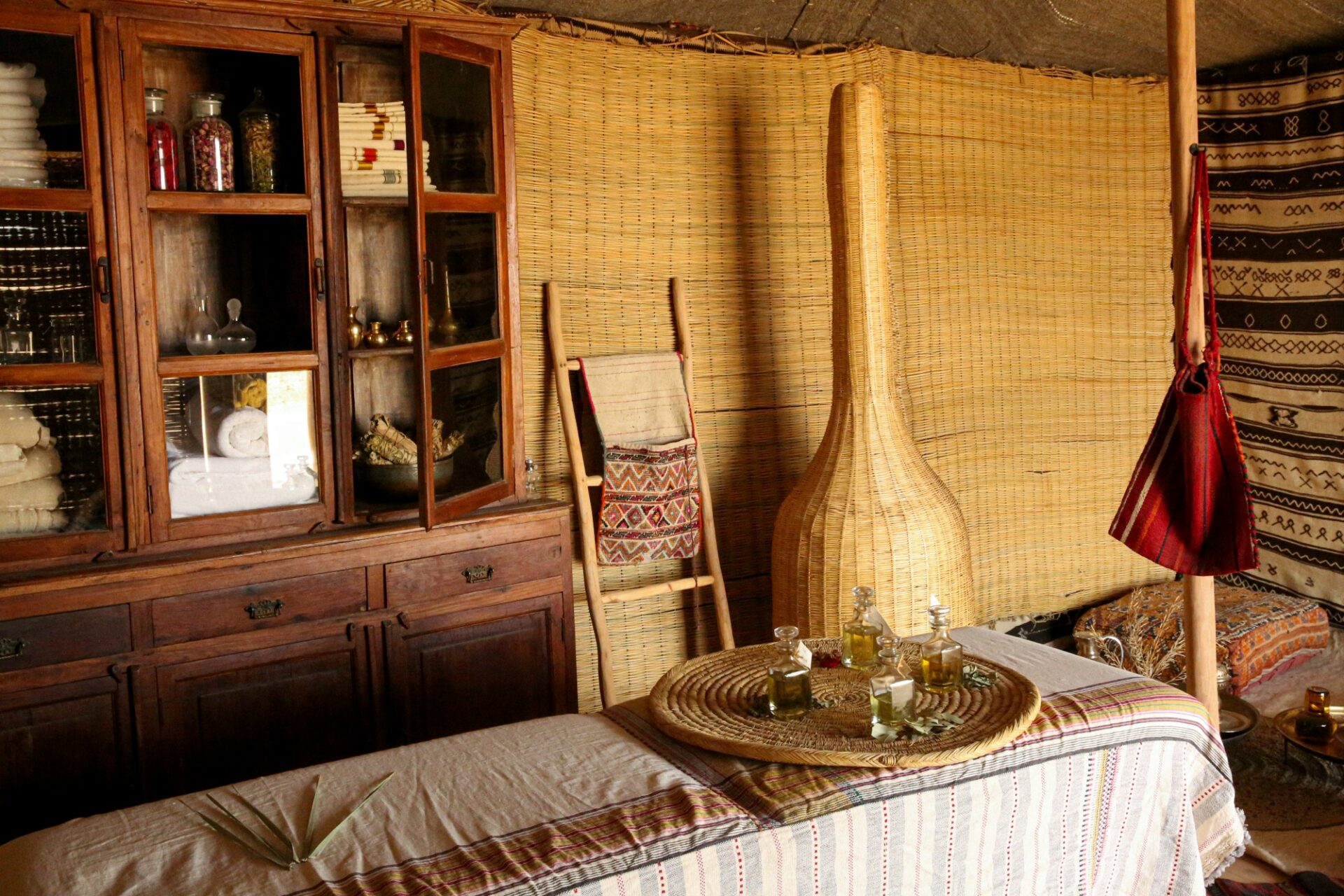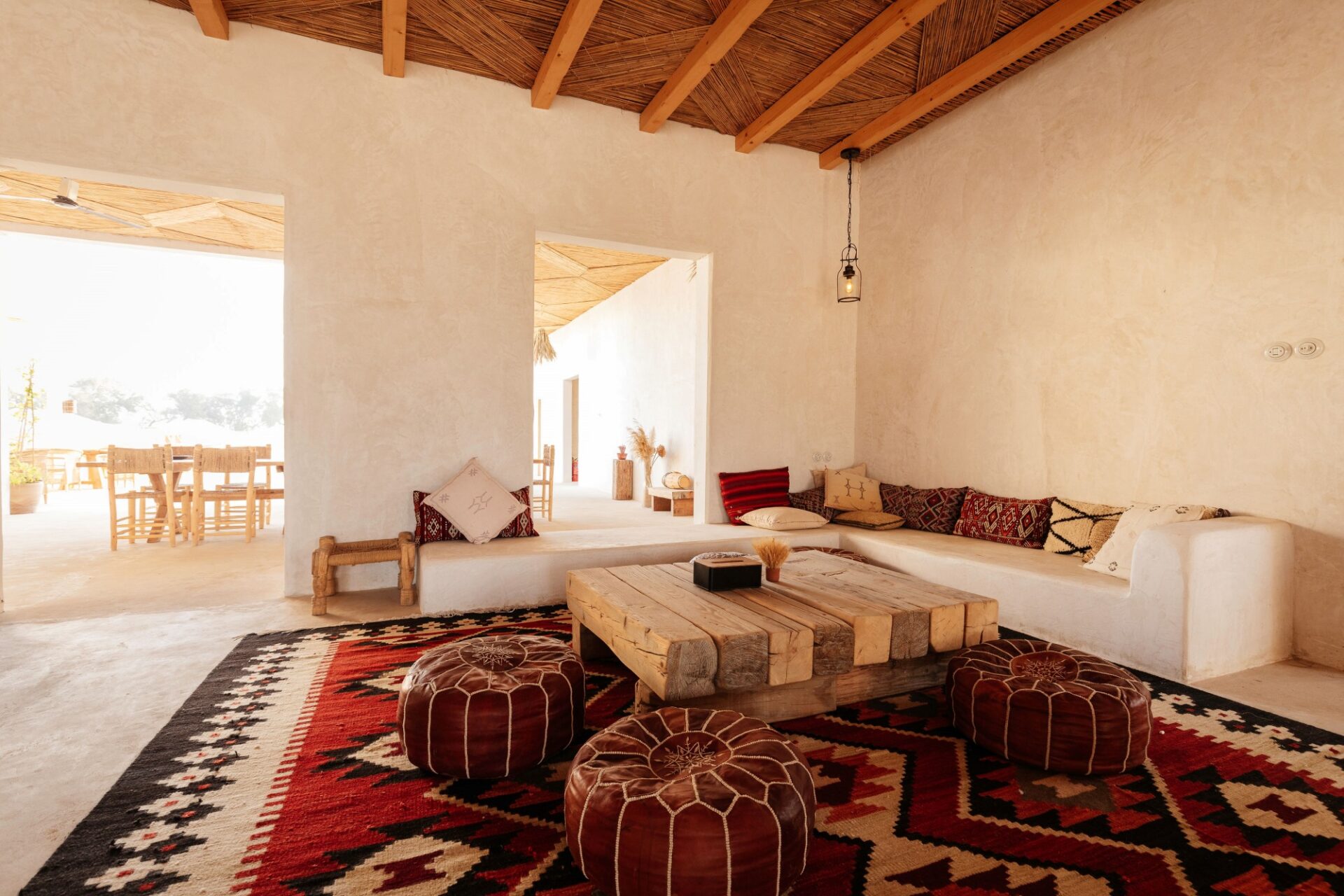Holistic Living with Heenat Al Salma
If you have been following the social media channels popular in Doha, you are sure to have noticed the holistic living and desert farming experience at Heenat Al Salma. We bring to you the larger role of sustainable living that Heenat Al Salma plays while engaging in agriculture, architecture and community development.
Heenat Al Salma is well-known amongst Qatar residents as a beautiful resort that promises rustic living conditions and a near-nature experience in desert life. The scenic surroundings, the stone architecture of the restaurant, the basic, yet extremely charming tents, every component using natural and available materials, makes for a resort that attracts anyone who wishes for a rustic experience in desert surroundings.
But Heenat Al Salma is much more than a hospitality experience; it is a way of living: a multidisciplinary project dedicated to holistic methods in agriculture, architecture, and community development.
“We have successfully transformed a local conventional farm into a regenerative organic one that grows desert-friendly plants, vegetables, diversifies local food production, and contributes to a renewable, home-grown food supply in Qatar,” says Fahad Al Attiyah, the ideator of Heenat Al Salma.
Heenat Al Salma is an initiative dedicated to holistic methods in agriculture, architecture, and community development and is part of a larger movement called the Caravane Earth Foundation that brought together a group of dedicated experts in agronomy, architecture, and water infrastructure to develop a holistic farm model with a ten-year strategy aimed at both converting a conventional farm into a centre for regenerative agriculture and introducing effective permaculture into the extreme climatic conditions of the Arabian Peninsula.
The farm wants to run and curate carefully considered projects executed on a foundation of creativity, health, and holistic wellness, while prioritising the role of cultural narratives and arts.
SCALE talked to Fahad Al Attiyah, the brains behind this concept of sustainable living, an experienced food security professional who has experience and passion for natural production and research-based methods as the Chairman of Qatar National Food Security Programme.
But what Al Attiyah wishes for the people to gain, at the very least, from this farm and its principles, is an understanding and a live demonstration of sustainable living.
“It is hard for the public to understand or conceive from the abstract notions and concepts of sustainable and ecological living and apply all these principles into reality. This project aims to demonstrate that these abstract notions are feasible, conceivable, liveable and possible to truly execute and practice,” says Al Attiyah, “And when people go home after visiting the farm, they go home with an understanding of ecological and sustainable living, having seen it being accomplished right in front of them.”
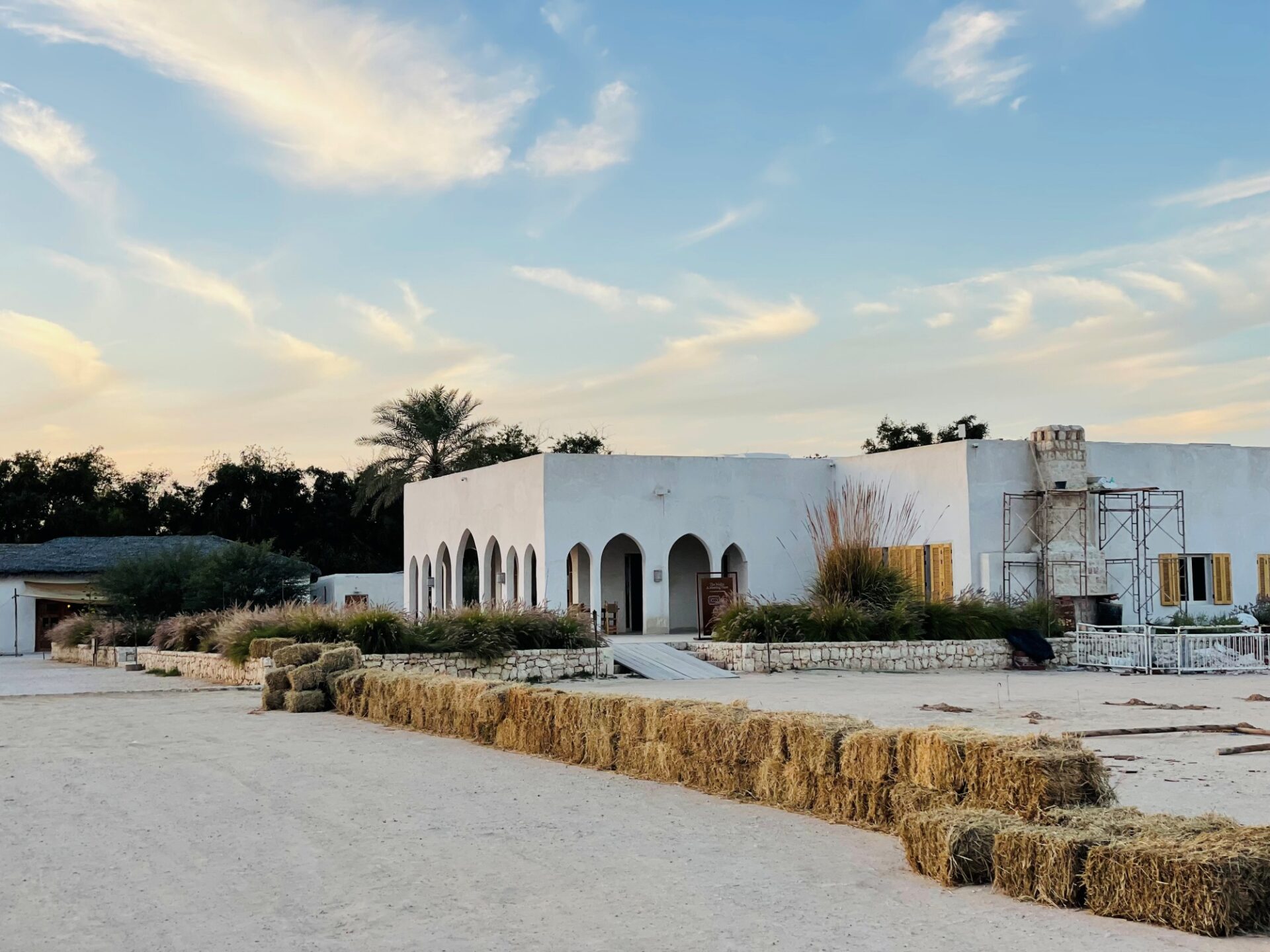 He puts the focus on why the tenants of the basic needs of humankind has helped shape the purpose of a farm like Heenat Salma.
He puts the focus on why the tenants of the basic needs of humankind has helped shape the purpose of a farm like Heenat Salma.
“It is a process to define the most important aspects of human cycle and we have come to accept that there are four key ingredients that we cannot live without. First is food thus the need of agriculture, second is shelter, hence the need for urbanism and architecture, third is clothes and the last one is spirituality and hence the presence of meditation, calligraphy and other art forms that satisfy the souls.”
Al Attiyah came to the conclusion that there was no room for complacency anymore and one has to showcase a solution to address these long-term challenges. Hence the urgency to bring to life the farm that answers all the basic materialistic needs with added spiritual education.
Inspired by Abdel Waheed El-Wakil
“With my personal background of working in the field of food security, sustainable architecture, climate change and also having apprenticed for 19 years with the famous natural urbanist and architect Abdel-Waheed El-Wakil, it was inevitable that I had to take the baton of responsibility,” says Al Attiyah on why he has taken the role of a change-maker.
 Has Heenat Al Salma followed any live examples in farming principles?
Has Heenat Al Salma followed any live examples in farming principles?
“There must be many models of what we practise around the world but none in this part of the world,” answers Al Attiyah.
Al Attiyah gives us more information on the cultural apprenticeship with Abdel Waheed and the takeaways that he had from this interaction. “Architecture, according to Abdel Waheed, is a reflection of one’s culture. Abdel Waheed proposes to revitalise traditional architecture as it is the most sustainable form of living and also because it reflects who we are, the one which has the necessary symbiosis with people. He juxtaposes himself opposite what is mainstream, that means he uses only natural materials and goes back to traditional ways of construction to bring back the authenticity of traditional architecture. The time spent with this two-time Aga Khan recipient has been one of the most inspiring and learning experiences and there is always more to learn from him.”
While Heenat Al Salwa is a good model on sustainable farming, Al Attiyah wants to contribute to the world the learning that he and his team had in the process. Water conservation is one main area of research that the Farm wants to delve into, to find out the optimum water needed for growth and to find out the ways in which water is being lost and then stem that process for the maximum use of this costly resource in the current setting.
“We want to conduct research on waste management, sequester carbon, reduce our negative carbon footprint and make sure that any resources have the ability to be reused and recycled. Another ongoing research are in the field of building materials, methods of construction, in the use of mud for walls, load bearing masonry, thatched roofs. While all this has been ongoing in other places, we want to revitalise all this together in one place and in this weather conditions to understand the challenges that are unique to us and also make the most of the advantages and use materials accordingly, through the researches in our Building Research Labs,” he says.
But it is not all research: “We also want to research how to prepare recipes that are wholesome, farm to table concept that makes it easy for people to use in their everyday cooking as it uses ingredients from around the country.”
 How about the success of the practice in financial terms? We have always assumed that sustainable farming and businesses are much more expensive because of the extra efforts and resources needed to do this much more carefully and insightfully, but Al Attiyah says this assumption is baseless, as the time taken for financial benefits might take longer for sustainable solutions.
How about the success of the practice in financial terms? We have always assumed that sustainable farming and businesses are much more expensive because of the extra efforts and resources needed to do this much more carefully and insightfully, but Al Attiyah says this assumption is baseless, as the time taken for financial benefits might take longer for sustainable solutions.
“We reduce our inputs, we do not plug ourself to a global supply chain and the self-sufficiency of the farm makes our methods far more independent and reliable,” he assures.
While Heenat is a dedicated research centre it takes wellness and community engagement to reduce the impact of the evils of social media quite seriously and engages in activities to make the entire process a full-fledged engaged learning and leisure activity.
“At Heenat Salma, our initiative is centred around seven key themes: Agriculture, Wellness, Food & Beverage, Lodging, Events, Artisanal Concept Stores, and a Creative residency. We aim to serve farm-to-table curated menus using our 100% organic farm produce, slow cooked to perfection using artisanal techniques providing wholesome and nutritional food” says Farah Al Yasin, Head of Creative Residency at Heenat Salma.
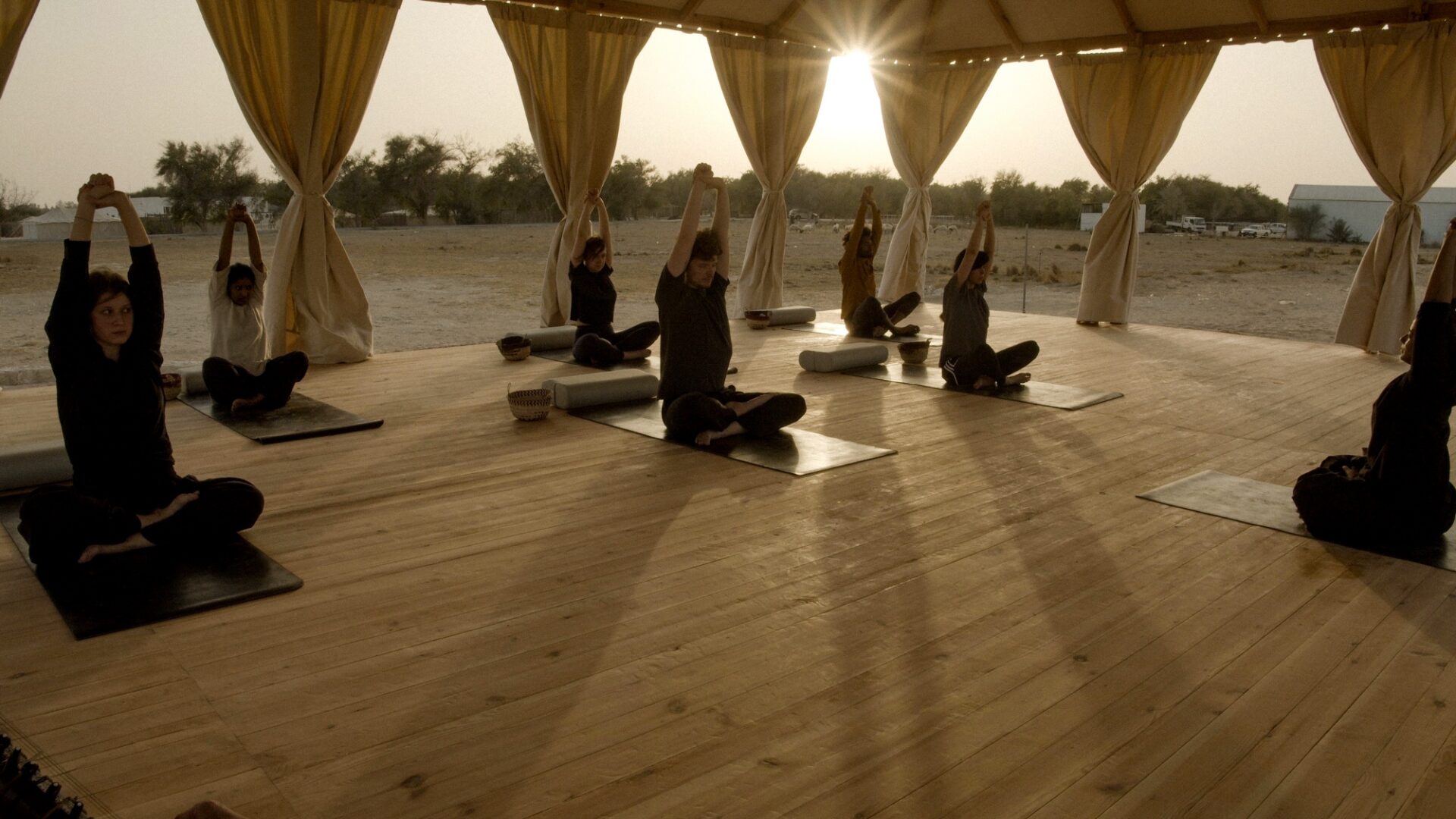 “We currently oversee and grow over 50 different crop varieties of homegrown organic fruits, vegetables, dairy products and will soon feature naturally sourced honey and meats. Our Majlis area offers relaxing warm spaces for an experience full of wellness. These include a therapy room, an outdoor terrace, a lap pool with holistic massage and meditation to balance physical and mental health. Promoting ethical action through engaging with people, we offer educational programs engaging children and adults with the arts, crafts, agriculture, architecture, and sustainable design thinking,” she continues.
“We currently oversee and grow over 50 different crop varieties of homegrown organic fruits, vegetables, dairy products and will soon feature naturally sourced honey and meats. Our Majlis area offers relaxing warm spaces for an experience full of wellness. These include a therapy room, an outdoor terrace, a lap pool with holistic massage and meditation to balance physical and mental health. Promoting ethical action through engaging with people, we offer educational programs engaging children and adults with the arts, crafts, agriculture, architecture, and sustainable design thinking,” she continues.
Heenat Al Salma consists of a diverse group of scholars, entrepreneurs, artists, health, and wellness professionals that have gathered together to help the preservation of culture, architecture and sustainable entrepreneurship.
“As we embark on this voyage working for humanity, and the Earth that is our home; we aim to become a cultural hub for the community fostering creativity while preserving history and culture.” says Al Attiyah.
Images Courtesy Heenat Al Salma and Aadhil Naleer.


